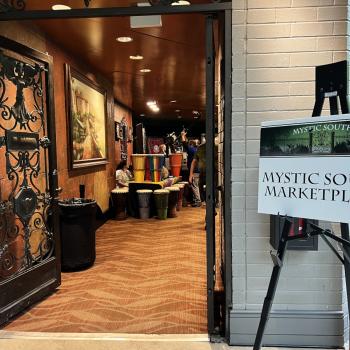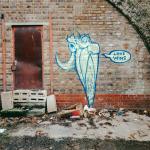 On June 28, 1914, Gavrilo Princip shot and killed Archduke Franz Ferdinand and Duchess Sophie in Sarajevo, a city in what was then Austria-Hungary and is now Bosnia and Herzegovina. This triggered a series of demands and counter-demands by the powers of Europe and exactly one month later, what would be called The Great War and later World War I began. 16 million people were killed.
On June 28, 1914, Gavrilo Princip shot and killed Archduke Franz Ferdinand and Duchess Sophie in Sarajevo, a city in what was then Austria-Hungary and is now Bosnia and Herzegovina. This triggered a series of demands and counter-demands by the powers of Europe and exactly one month later, what would be called The Great War and later World War I began. 16 million people were killed.
The historical interpretation I was taught in elementary school has not changed. The assassination of the Archduke started World War I, but it did not cause it. The causes are many and complex, with the attempt by the great powers to maintain and expand their empires and the oppression of ethnic minorities within those empires at the top of the list.
The cumulative effect of several decades of political and military maneuvering made war inevitable. Europe around the beginning of the 20th century has long been described as a powder keg and the assassination was simply the spark that set off the explosion. Ultimately, Gavrilo Princip’s actions were irrelevant. If he had not killed Franz Ferdinand some other incident would have started the war. The great powers had already fixed their destiny – and the destiny of 16 million individuals.
Make enough choices and eventually you find yourself on a path that bears a strong resemblance to fate, even though it is simply the cumulative consequences of your free will.
Princip’s shooting was very relevant to three people. Without it, the Archduke and Duchess (aged 50 and 46, respectively) might have lived another twenty or thirty years. Without it, Princip almost certainly would not have died in prison four years later at the age of 23.
Fast forward 100 years. On August 9, 2014, Officer Darren Wilson shot and killed Michael Brown, an unarmed Black teenager in Ferguson, Missouri. In the aftermath, Sunil Dutta, an officer for the LAPD for 17 years, wrote this piece for The Washington Post titled “I’m a cop. If you don’t want to get hurt, don’t challenge me.” His essay set off a firestorm (thankfully, only a metaphorical firestorm) of comments; some charging Dutta with victim-blaming and oppression-enabling, others claiming he offered sound advice. There is truth on both sides.
For an individual, it is sound advice. A police officer is carrying a club, pepper spray, an electro-shock torture device, a gun and a radio. You, at best, are carrying a camera. The officer is part of a judicial system that has demonstrated it protects its own unless there is clear proof they were wrong, and many times it protects them even then. Challenge an officer and you’re playing poker with a hand of nothing against three visible aces. Maybe you think you’re good enough to bluff your way into winning that hand, but when the stakes are quite literally your life, it’s far more sensible to fold and try again next hand.
What is sound advice for individuals is ludicrous naiveté for societies.
I have had very few encounters with the police in my life. Some of that is due to being white and middle class and some is due to a sense of self-preservation that often crosses the line from healthy into paranoia. Most have been handled quickly and professionally, if not always politely.
One was not. Many years ago a police officer stopped me on foot for no apparent reason. I did what Officer Dutta would have recommended – I cooperated. There was no physical confrontation. The verbal confrontation would not have been considered abusive. My every act was centered around the goal of ending the confrontation as quickly and painlessly as possible. I was successful – it was over in a few minutes and I went on my way.
I left that encounter with three strong impressions. First, I was incredibly angry. I was doing nothing illegal and there was nothing in my actions that would indicate I had done or was about to do something illegal. He had no reason to stop me. The thoughts that went though my head were not in alignment with my values even then, much less now. Knowing any physical action would not end well for me, I wanted to report him for abuse. After my blood pressure dropped to a safe level, I realized filing a complaint would be more trouble than it was worth. Probably nothing would come of it, he might retaliate in the future, and in any case I didn’t want him reprimanded. I wanted him arrested, tried, convicted, and sent to a prison so brutal it would make Joe Arpaio blush. None of that was in the realm of possibility. But I was that angry.
Second, I have that strong sense of self-preservation. And I wondered what would have happened if instead of stopping me, he had stopped someone with a little less control? What if he had stopped someone with a little less fear of physical confrontation? What if he had stopped someone who had a really bad day and who, in that moment, didn’t really give a damn whether he got hurt or not?
Finally, I remembered that for some people in some neighborhoods, stops like this are a regular thing. At some point any reasonable person would get fed up. If you could move, you would. If you couldn’t, or if you found that unjustified stops continued no matter where you went, you might get to the point where reacting in a calm, reasonable manner was no longer possible.
Maybe you could put up with that time after time after time. Maybe you could convince yourself it’s the price you have to pay for “law and order.” Maybe everybody in your circle of friends could remember the odds of confrontation and override millions of years of evolution screaming “fight or flight.”
Maybe you can. But sooner or later, someone won’t. What is sound advice for individuals is ludicrous naiveté for societies. “Don’t challenge the police” is the equivalent of posting a no smoking sign on a leaking pile of high explosives – it may be good advice, but it’s grossly inadequate to prevent a disaster.
Ferguson is not Sarajevo, if only because there is no great power conflict involved. But there is a powder keg there, and in far too many communities across the country. Have we, like the great powers of Europe, fixed our destiny? I hope not.
But if World War I taught us anything, it’s that smothering the sparks only works for so long.
The solution is to remove the powder kegs.
The solution is justice.

















